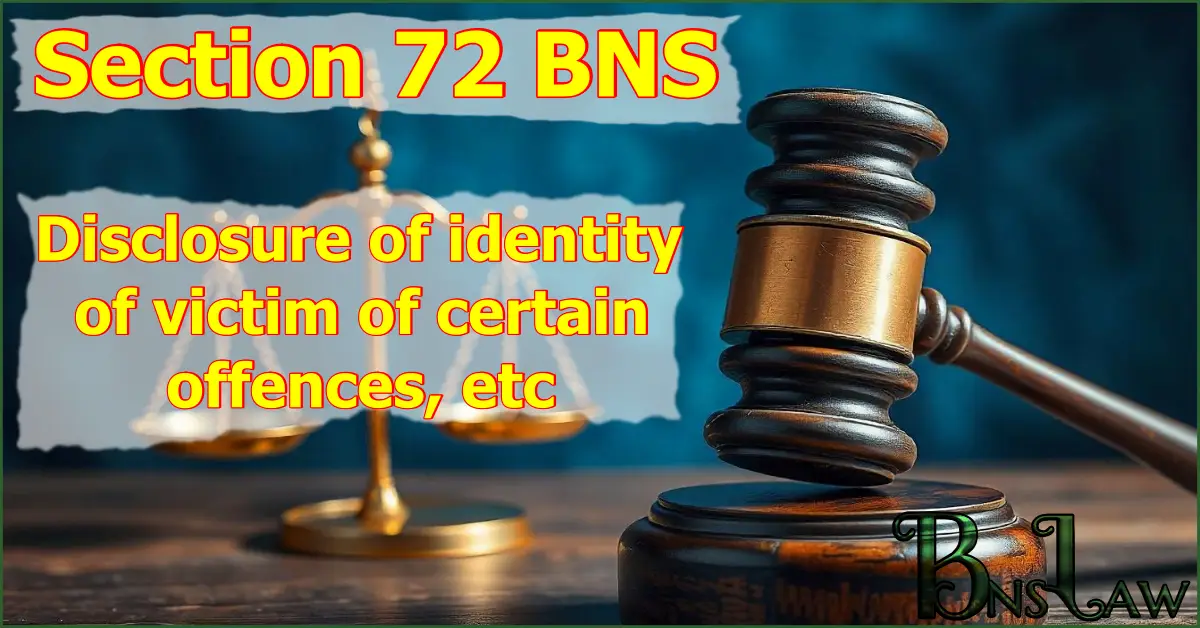Section 72 BNS | BNS 72
72(1) BNS
Whoever prints or publishes the name or any matter which may make known the identity of any person against whom an offence under section 64 or section 65 or section 66 or section 67 or section 68 or section 69 or section 70 or section 71 is alleged or found to have been committed (hereafter in this section referred to as the victim) shall be punished with imprisonment of either description for a term which may extend to two years and shall also be liable to fine.
72(2) BNS
Nothing in sub-section (1) extends to any printing or publication of the name or any matter which may make known the identity of the victim if such printing or publication is—
(a) by or under the order in writing of the officer-in-charge of the police station or the police officer making the investigation into such offence acting in good faith for the purposes of such investigation; or
(b) by, or with the authorisation in writing of, the victim; or
(c) where the victim is dead or a child or of unsound mind, by, or with the authorisation in writing of, the next of kin of the victim:
Provided that no such authorisation shall be given by the next of kin to anybody other than the chairman or the secretary, by whatever name called, of any recognised welfare institution or organisation.
Explanation— For the purposes of this sub-section, “recognised welfare institution or organisation” means a social welfare institution or organisation recognised in this behalf by the Central Government or the State Government.
READ OTHER SECTIONS OF CHAPTER V — OF OFFENCES AGAINST WOMAN AND CHILD
FAQs of BNS Section 72
-
72 BNS punishment and fine
Punishment and fine under Section 72(1) of the BNS: Imprisonment for 2
years and fine. -
72 BNS cognizable or not
The offence under Section 72(1) of the BNS is cognizable.
-
72 BNS bailable or not
The offence under Section 72(1) of the BNS is bailable.
-
72 BNS trial court
Offence specified in Section 72(1) of the BNS is triable by any Magistrate.
Important Points
- Cognizable Offences: These are offences where a police officer can arrest a person without a warrant.
- Non-Cognizable Offences: These are offences where a police officer cannot arrest a person without a warrant.
- Bailable Offences: These are offences where the accused can get bail from the police station itself. All bailable offences are listed in the First Schedule of the Bharatiya Nagarik Suraksha Sanhita (BNSS).
- Non-Bailable Offences: Offences in which bail is not granted directly from the police station but after hearing the case in the court, the judge decides when bail will be granted. All non-bailable offences are listed in the first schedule of the Bharatiya Nagarik Suraksha Sanhita (BNSS).
- In the above FAQ, “trial court” means the court that has jurisdiction to try the offence.
- In the above FAQ, the expression “Magistrate of the first class” and “Any Magistrate” does not include Executive Magistrates.
Read other Sections of the BNS
Reference Link: New Criminal Laws (BNS), Ministry of Home Affairs







